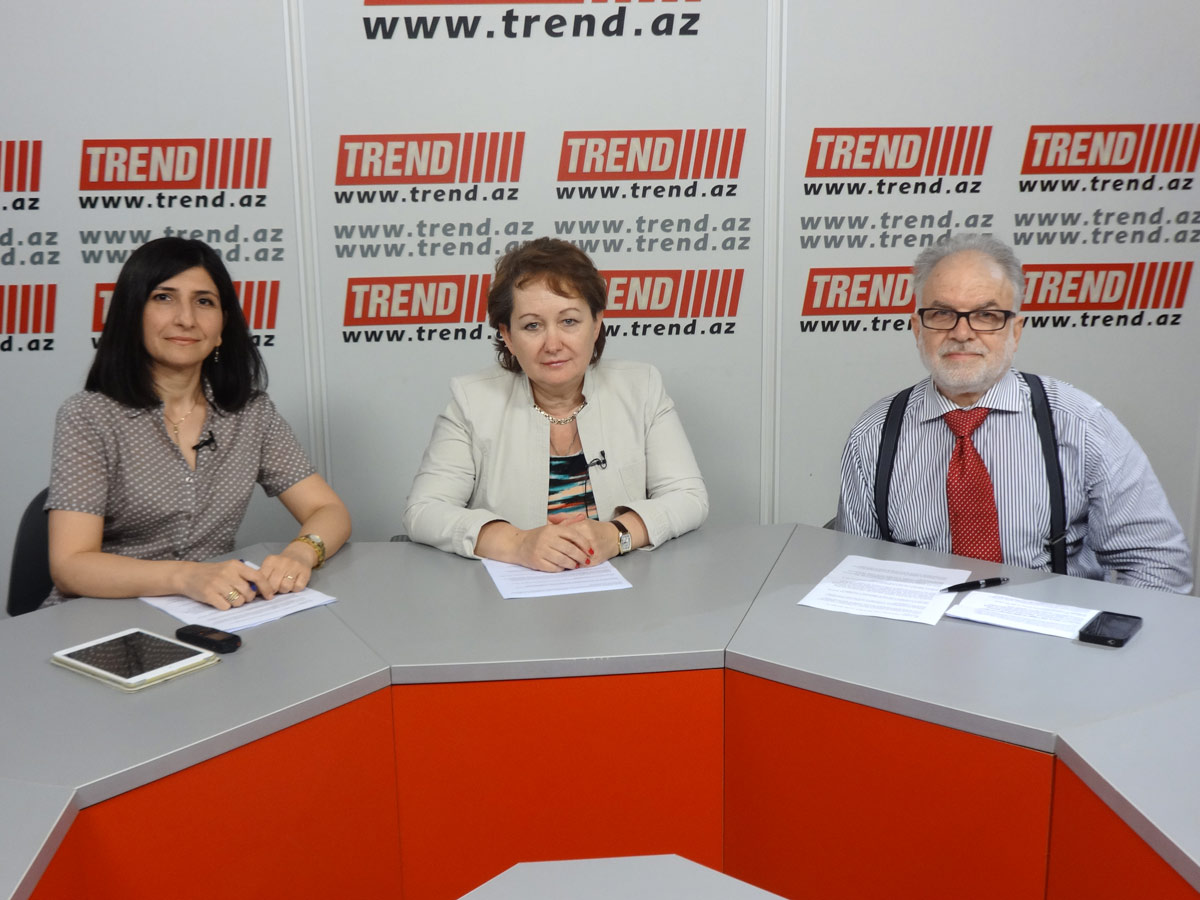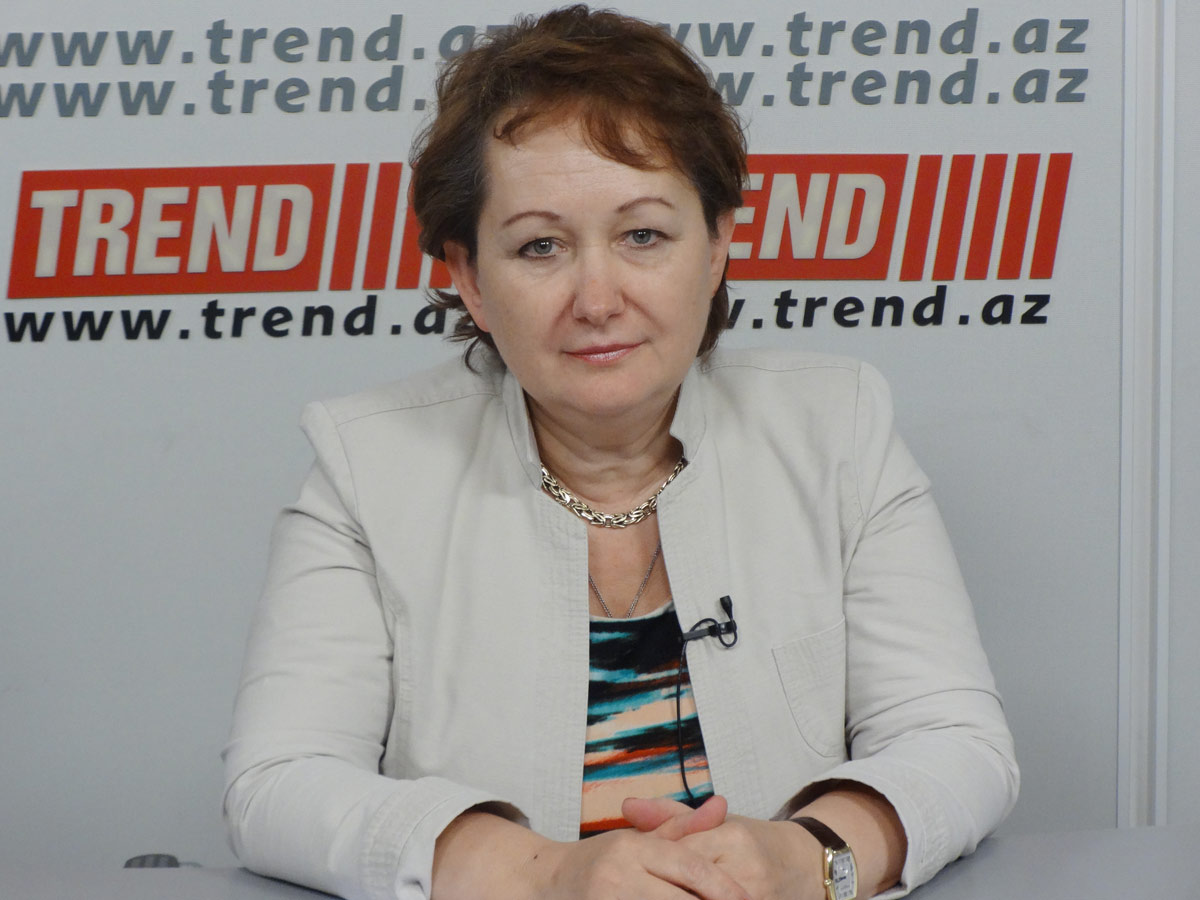Baku, Azerbaijan, June 22
By Elena Kosolapova - Trend:
Azerbaijan used its oil very well for the development of economy and the improvement of people's livelihood, Larisa Leshchenko, the World Bank's (WB) country manager for Azerbaijan, told Trend during the 'This Week in Focus' program episode.
"Azerbaijan managed to use its oil very well for reducing the poverty, improving the livelihood of people and addressing a lot of challenges including in the development of infrastructure, investing into the market institutions, doing a lot of other things," said Leshchenko.
She added that Azerbaijan's objective of finding new sources of growth and relying more on the non-oil sector rather than the oil sector is the right strategy.
"Many oil-rich economies and resources-rich economies face very similar challenges in their development. Of course, Azerbaijan is not an exception," said Leshchenko.
She said the current crisis, which Azerbaijan is facing, is not the crisis in itself, but the implications of the regional crisis and also drop in the oil price, adding that this is a real challenge.
"And there are many positive things which we can observe in the country starting from that the macroeconomic situation is overall stable, and we know that the reserves accumulated by the country serve well in this environment, plus the recent trends of increasing the role of non-oil sector was very positive," she said.
"Of course it was mainly driven by the public investments coming from the state budget, but we do believe that there is a need to change this trend and to move towards the new growth model, which will be propelled by private investments. This is the most challenging task for the country," said Leshchenko.
She also recalled WB's recent regional study for Europe and Central Asia.
"The topic of this study was about diversification," she said, adding that one of the main conclusions of the report lies in that the most important thing is not to invest into construction of one, two, three, five enterprises in different sectors, which will not be a sustainable model.
"Because these enterprises might not be competitive in the global market," she added. "But the important thing is to invest in infrastructure, which would connect possible businesses with international market or the domestic market."
"The second one is to invest in institutions that would support development of the private sector, the financial sector and would boost entrepreneurship and potential for business development in the country," said Leshchenko.
She said the third direction is to invest into the human capital, adding that this is one of the most important investments to undertake in order to create space for people to use their skills in the best possible ways, to allow human capital to contribute to the diversification of the economy and use their creativity, entrepreneurship skills.
"These are very important three directions," said the WB official, adding that the WB is supporting practically all three directions in Azerbaijan.
"We are working in order to develop infrastructure, international connectivity, highways, water supplies, market institutions, at community level," she said.
Leshchenko recalled that recently WB jointly with the International Monetary Fund (IMF) undertook the financial sector assessment in Azerbaijan.
She said that according to the assessment results, the non-banking financial sector in Azerbaijan is underdeveloped compared to other countries in the same income category.
"The WB pays a lot of attention to this issue," said Leshchenko, adding, "We have pretty broad set of activity that we are undertaking in Azerbaijan, starting with our work with the mortgage fund."
"We really want to help the government [of Azerbaijan] with establishing a good system of mortgage provision, so the people could use it as a vehicle to finance their housing," the WB official added.
She added that the WB is working through one of the projects in Azerbaijan to develop a capital market.
"At this stage it is shallow, but we do believe that it will play a much more important role," she said.
Leshchenko noted that recently a very important law on secure transactions was passed by the parliament of Azerbaijan.
"It is a very important step forward in terms of improving the access to finance different categories of business," she said.
The WB official further said that insurance business is also one of the potential areas for development in Azerbaijan.
"We work very actively with different players," said Leshchenko.
She also noted that WB's portfolio in Azerbaijan is already pretty big.
"It comprises 17 projects and $2.7 billion," she said. "Majority of these investments are in infrastructure. And then, we have a lot of others: in agriculture, in education, real estate registration."
"We are going to do two things: invest in the activity that proved to be effective, we can add resources to these areas to show a good result, and also explore new areas, like for instance, supporting power distribution," said Leshchenko.
She noted that WB is working now on a new project to improve electricity supply to the regions.
Azerbaijan became a WB member in 1992. As of January 1, 2015, the WB has allocated $3.739 billion worth loans to Azerbaijan. These funds were used to finance over 50 projects. By early this year, Azerbaijan drew $2.297 billion, or 66.4 percent of all the loans, raised through the WB.
Apart from these loans, between 1995 and 2014, the World Bank allocated 45 grants for Azerbaijan totaling $41.586 million.
You can follow the program on Twitter or Facebook. The program has its own channel on Youtube.
Follow the author on Twitter: @E_Kosolapova









